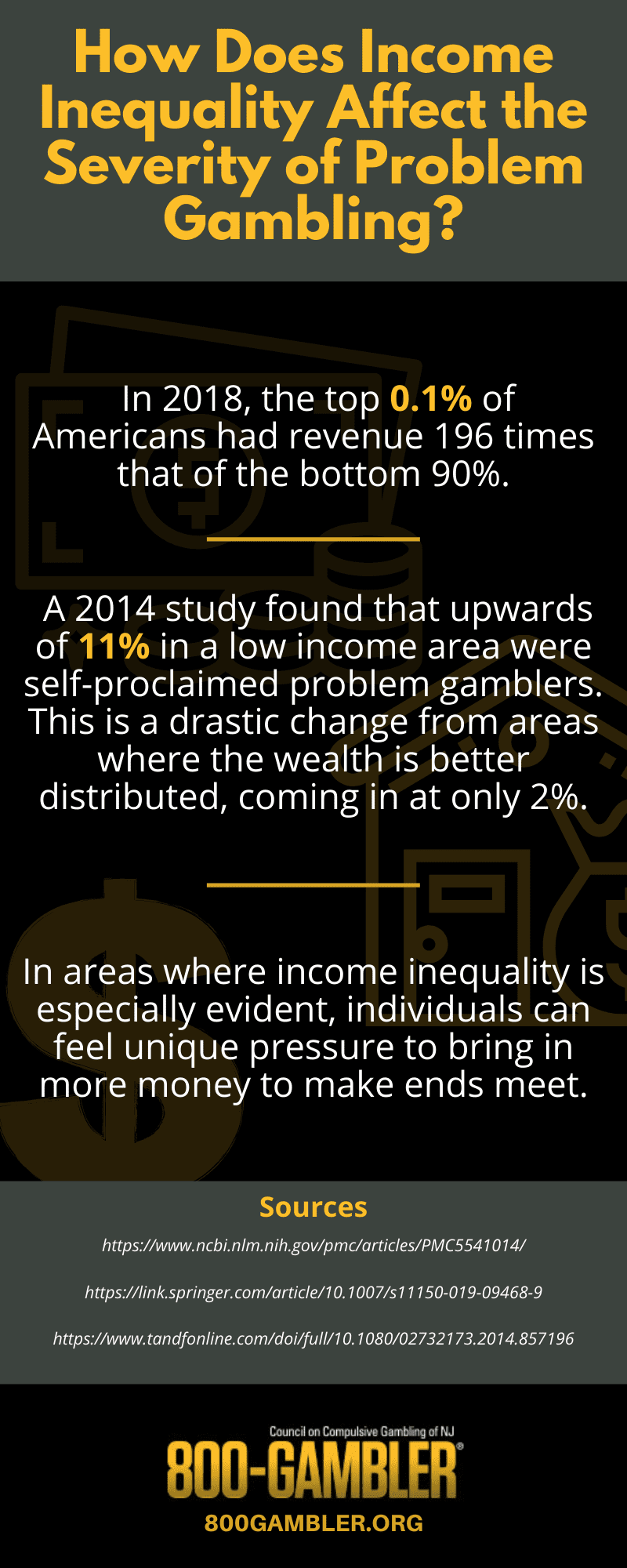Gambling has been a popular recreational activity since the dawn of time. For people struggling with financial insecurity or finding many items out of the reach of their budget, gambling can seem like an attractive opportunity to win big or get some wiggle room in their budget. Now, there are hundreds of different ways to make wagers both in person and online. Access to betting sites has made it easier than ever to gamble, but it’s not the same experience for everyone.


What Is Income Inequality?
Income inequality is the gap between how much a household earns at the lowest end and the highest. Historical factors, such as the auto industry leaving Detroit or the Great Recession, have only exacerbated the conditions that lead to the uneven distribution of household income in America. This uneven distribution has been around for centuries, with royalty representing the upper echelon of society and all other subjects left to collect scraps. In 2018, the top 0.1% of Americans had revenue 196 times that of the bottom 90%. This huge disparity has led to much tension between the classes, while also driving those with less money to seek out the most opportune ways to increase their income, including gambling.
Gambling Can Be Attractive to the Economically Disenfranchised
Unfortunately, many Americans down on their luck see gambling as an opportunity to get out of their economic misfortune. The fantasy of turning one dollar into one million is truly that; a fantasy shown on the big screen for the purpose of a scene. This doesn’t mean you can’t win big by gambling; it simply points to the fact that these chances are so slim that relying on them for income is not recommended. The pressure felt by low-income households to do better in society’s eyes can increase the pressure to bring in more income. Occasional gambling “successes” can create a difficult-to-break cycle in which people gamble away the money they need for expenses in hopes of walking away with a big win.
Gambling Can Feed Into a Problematic Cycle That Affects All Members of the Household
Problem gambling in low-income areas can extend beyond heads of households looking to improve income. A study done during the 2013-2014 school year found that out of the 20,791 students who completed the assessment, upwards of 11% in some areas were self-proclaimed problem gamblers. This is a drastic change from areas where the wealth is better distributed, coming in at only 2%. While still an immense problem, it shows that how one views the world around them can impact these behaviors.
We’re here to connect individuals looking to enter treatment for problem gambling habits. Reach out for a confidential consultation online or contact our 24/7 helpline to get back on the path of achieving your life’s goals.
Sources:
https://www.ncbi.nlm.nih.gov/pmc/articles/PMC5541014/
https://link.springer.com/article/10.1007/s11150-019-09468-9
https://www.tandfonline.com/doi/full/10.1080/02732173.2014.857196



